
This is a user generated content for MyStory, a YourStory initiative to enable its community to contribute and have their voices heard. The views and writings here reflect that of the author and not of YourStory.

How Artificial Intelligence Can Benefit your Business In 2020?
How Can You Endow the Benefits of AI in Your Business? Artificial Intelligence and Machine learning are turning out to be the wonder weapon for business growth.

This is a user generated content for MyStory, a YourStory initiative to enable its community to contribute and have their voices heard. The views and writings here reflect that of the author and not of YourStory.

In this era of digitalization, artificial intelligence is innovating with each passing day and revamping our day-to-day lives and businesses. But do we actually understand what artificial intelligence really is? And how this technology is helping our businesses? Let’s find out-
What is Artificial Intelligence?
Artificial intelligence in simple words is the ability of a machine or computer program to think and learn. It is also a place of study which tries to develop computers a little smarter. Computers can work on their own without any human intervention.
Artificial intelligence is playing an important role in the growth of businesses. Every year or month, we see a fresh batch of advanced AI-based solutions across both processes and products. It helps the business to detect fraud early, increase sales, automate work processes, improve customer experience, and offer predictive analysis.
Also, it supports healthcare service providers by offering better and advanced tools for early diagnosis.
According to PwC’s report, “67.0% of executives believe AI will help machines and people to work together to improve operations — by combining human and artificial intelligence.
The surging business productivity and increasing consumer demand for better quality and increasing customized AI-enhanced products are escalating the growth of AI in the market.
According to the Statista, the global artificial intelligence software market is predicted to witness a massive growth in the near future, with revenue surging from around $10.0 billion in 2018 to $126 billion by 2025
It’s hard to ignore that AI is the future of business, and sooner or later, companies across the globe will implement it to stay ahead in the competitive market. There are various types of artificial intelligence that help a business to grow which are as follows-

Everyone is talking about AI in business, it can be hard to know which one to choose or from where to start when deciding how to add AI in your business operations. So for better understanding, here are some suggestions on how you can choose AI for your business.
Suppose you have a retail store and wish to improve your overall customer experience and support services with AI. And, you also want to make your support staff use AI-enabled automated assistance technologies to make decisions and get work done.
So, how to prepare for AI?

The best way to evaluate the implementation of AI in your business is to figure out its practical use in your business. And, you also have to decide:
- What AI tools can do for your business? See if it can help in your work.
- How your competitors are using AI in their business operations?
- What are the challenges in adding AI to your company’s operations?
- What are the future trends of AI?
Let's finish things one by one, so the first one is the importance of AI in business-
Importance of AI in Business
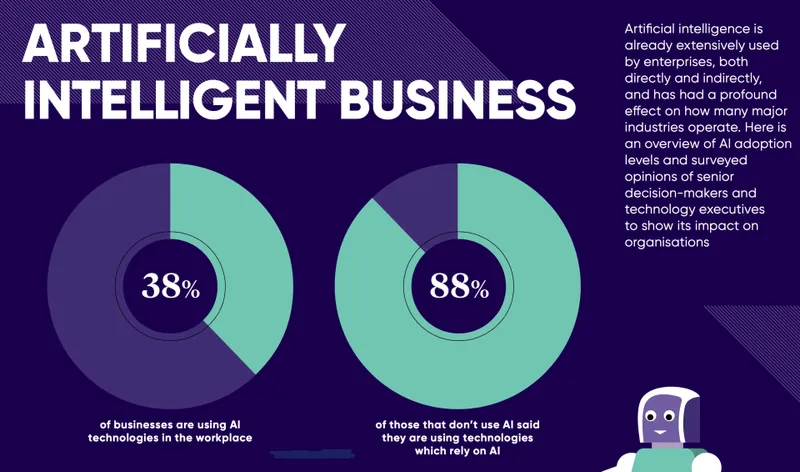
Many businesses have witnessed that after employing AI programs in their organization, there is increasing productivity and surging revenue due to the AI's greater automation.
Today, the majority of companies are developing smart AI software programs with Go programming language, Python, Lisp, Java, Haskell, and Julia.
For example, National Institutes of Health (NIH) researchers use Artificial Intelligence (AI) with smartphone cameras to detect cervical cancer that will help more women to get the right medication.
According to reports by the National Cancer Institute, a system based on the AI algorithm learned to detect the specific form of changes in the cervix due to precancerous changes.
Retail and banking are among the top sectors using AI in their existing and upcoming projects.
For example, Walmart harnessing AI to optimize everything related to their inventories, supply chain metrics, and customer service. For example, Walmart plans to deploy AI-enabled shelf-scanning robots across their U.S stores to find missing items, price tags, and products that need to be rearranged.
These robots will also take care of customers' needs and make sure that customers aren’t faced with the issue of empty shelves. Banking and financial institutions see great potential in AI technology. How? See the below-given image:
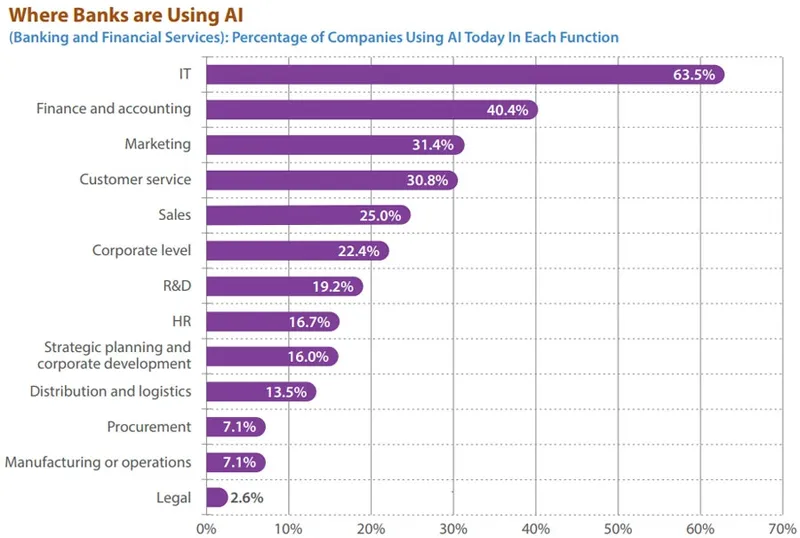
As AI adds productivity and opens up a whole new world of possibilities for your enterprise, you should also know about the best programming languages for AI.
Best programming languages for AI that will benefit your business
You should keep an eye on AI programming languages along with what the other businesses are using and talking about.
There is no denying that the number of emerging AI technologies these days is overwhelming. So, which one is the perfect fit for your own business?
To lend you a hand, here's the list of the best AI programming languages for enterprises and programmers community. So, let’s dive in!
1) Python
When it comes to the best AI programming language, Python is your best bet because of its less complex programming and pre-built libraries - (SciPy, Pandas, Matplotlib, Scikit learn, and NumPy) that help in AI software development.
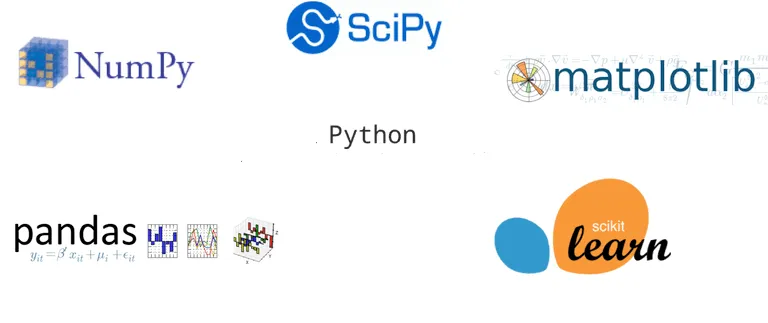
If you are working on deep learning projects, such as automatic image colourization, pixel restoration, multi-person pose estimation, and more, then you can use Python pre-built libraries, including PyTorch, TensorFlow, and Apache MXNet.
Furthermore, if you are working on Natural Language Processing (NLP) sentiment analysis, then you should go for Python’s NLTK to take advantage of simple & easy syntax, structuring, and text processing.
One of the best examples of the online retail store built on Python is Affirm that allows its users to make their payments in a completely safe manner. Python is also used to build AI software solutions to analyze the market, and make predictions, and visualize data.
Some big brands using Python in their application development-
Google has been a supporter of Python because of its ease of maintenance and fast delivery system. Facebook also uses Python for hardware imaging, operational automation, infrastructure management, and binary distribution.
2) JAVA
Java is one of the best programming languages used by analytics firms like NASA. The list of best programming languages for AI is incomplete without talking about Java which is an object-oriented programming language that is easy to maintain, portable, and transparent language supported by a group of libraries.
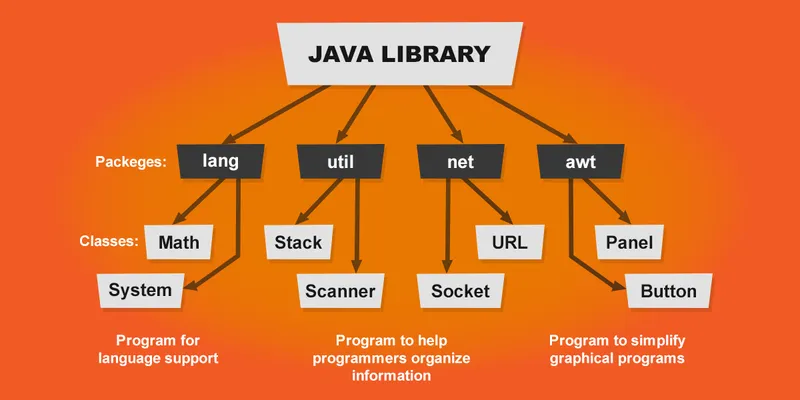
Java is also user-friendly and can work across different platforms without requiring any recompilation. If you’re working on a natural language processing (NLP) project, then Java gives you enough support from its group of libraries.
Java supports big data platforms like Apache Hadoop and Apache Spark, which is good for creating data analytics related to AI development. NASA World Wind is an open-source virtual globe built on the principles of Java. It is known for its zooming capabilities that allow you to zoom from satellite altitude into any place on the Earth. It also lets you see Earth terrain in a 3D rich environment.
3) Google GO
Go Language is seen as the future of AI-enabled technologies While AI has only started making an impact on consumers, Google’s Go is an open source language that has been at the heart of AI development today.
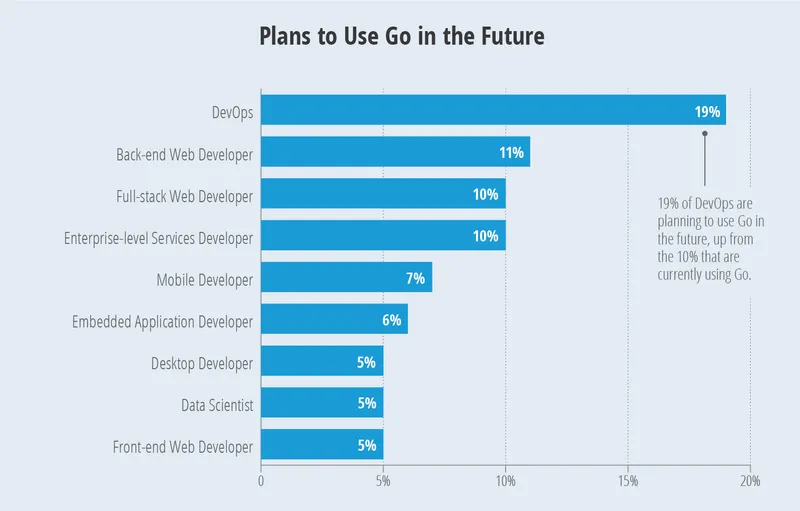
Some consider it to be the best programming language for AI development because developers can work with machine learning libraries written directly in Go language. It’s also best suited for AI development because its unique features enable the safe and smooth processing of information.
Most notable companies such as Dropbox, Google, Lyft, Uber and Heroku use Go language because of its cross-platform support capabilities, fast compilation, and reliable software creation.
What is Golang used for?
Golang is a general purpose language made for future AI programming. Today AI developers often turn to Golang for AI projects that are based on ML because it offers features such as functional programming, rapid prototyping capabilities, C-inspired syntax, simplified documentation, garbage collection, and is highly flexible and adaptable to problem-solving needs.
According to research by Google’s Russ Cox, “Golang is currently used by at least 1 million developers across the world. On GitHub, the language has received over 65.7k stars and 9.3k forks, with over 1,400 contributors and 42,000 commits”.
In recent years some of its key features made it a special option in the world of AI for businesses. It’s also easy to hire expert Go Lang developers with the help of the best companies to hire Golang developers. So, don’t delay, get it now to your work.
4) Julia

If you have a requirement for a task that demands numerical computing and analysis, Julia is the best programming language for your AI business projects. It is specifically designed for the numerical computing required by AI.
It gives you results without requiring a separate form of compilation and its programming structure includes parametric polymorphism to make your software program more expressive along with the capabilities of dispatch software.
According to a report, the number of downloads of Julia has increased 78.0%, from 1.8 million to 3.2 million, since January 2018.
Unlike the languages above, Julia provides excellent support for deep learning applications. For example, working with Julia allows you to translate complex algorithms directly from the research papers into the code form. This significantly reduces the risk of errors, improves safety, and cuts costs because it supports languages like Python, C++, and R.
5) Haskell

Haskell is a perfect choice for building AI enabled software solutions. Tech giants, such as Alcatel-Lucent have been using Haskell to develop its narrowband software radio system. use it.
Haskell is also used in banking, large financial institutions, large data science firms, and research projects because it supports domain-specific languages that support programming language research and AI capabilities.
Unlike Python and Java, Haskell is perfect for academic software development, as it supports a group of expressive libraries to create AI algorithms. It’s also a perfect choice for creating probability based programming that helps developers quickly identify the compilation errors during the phase of the iteration.
Bottom Line
AI software solutions are already improving our way of managing business activities, and future AI solutions can be used to predict the outcome of your efforts. And it is also helping developers to understand and act on future opportunities for the execution of AI strategy in business organizations. So, be ready to take advantage of new AI enabled technologies.
There are many companies, but its difficult to opt for the one, who keep an eye on market trends , AI capabilities, and everything involving development technology for your business project.
If you are looking to hire machine learning app developers you can connect with ValueCoders- A leading machine learning app development company in India, the company have 16+ years of experience in delivering services to thousands of users across the world. So far, they has served 2500+ happy clients and worked on 4200+ projects with 97.0% client retention.



